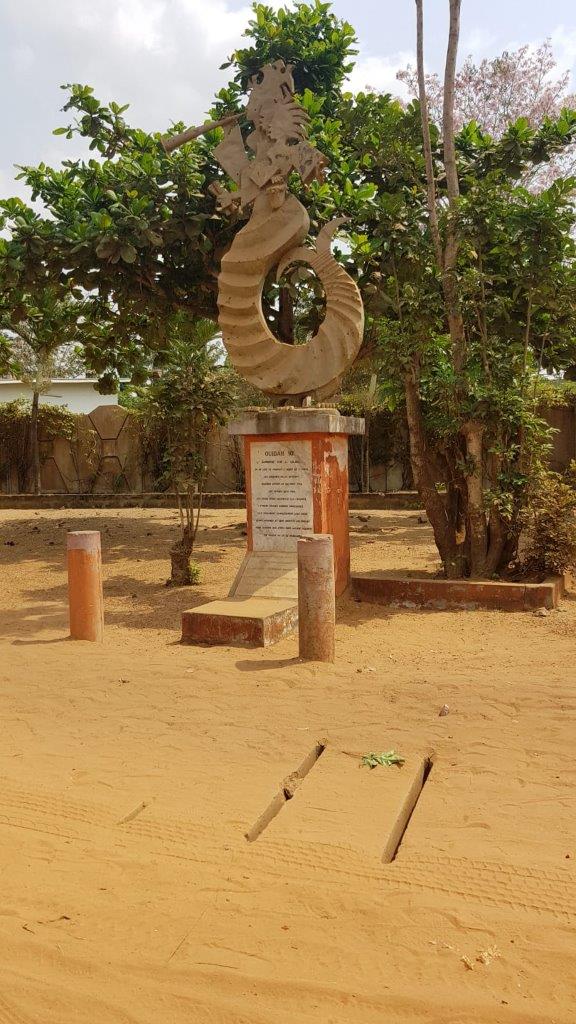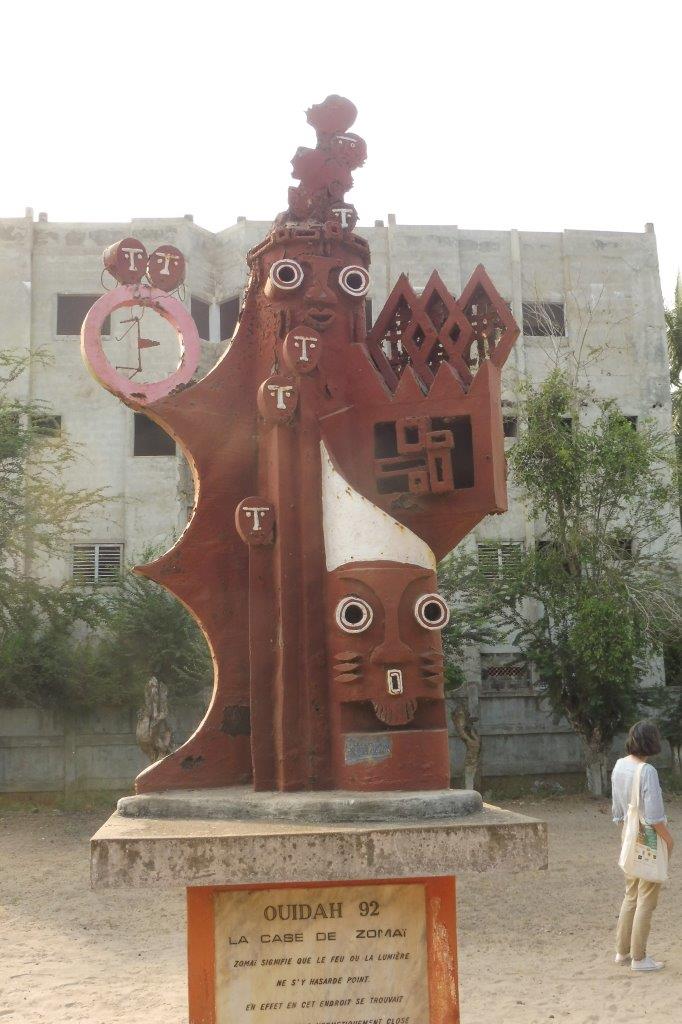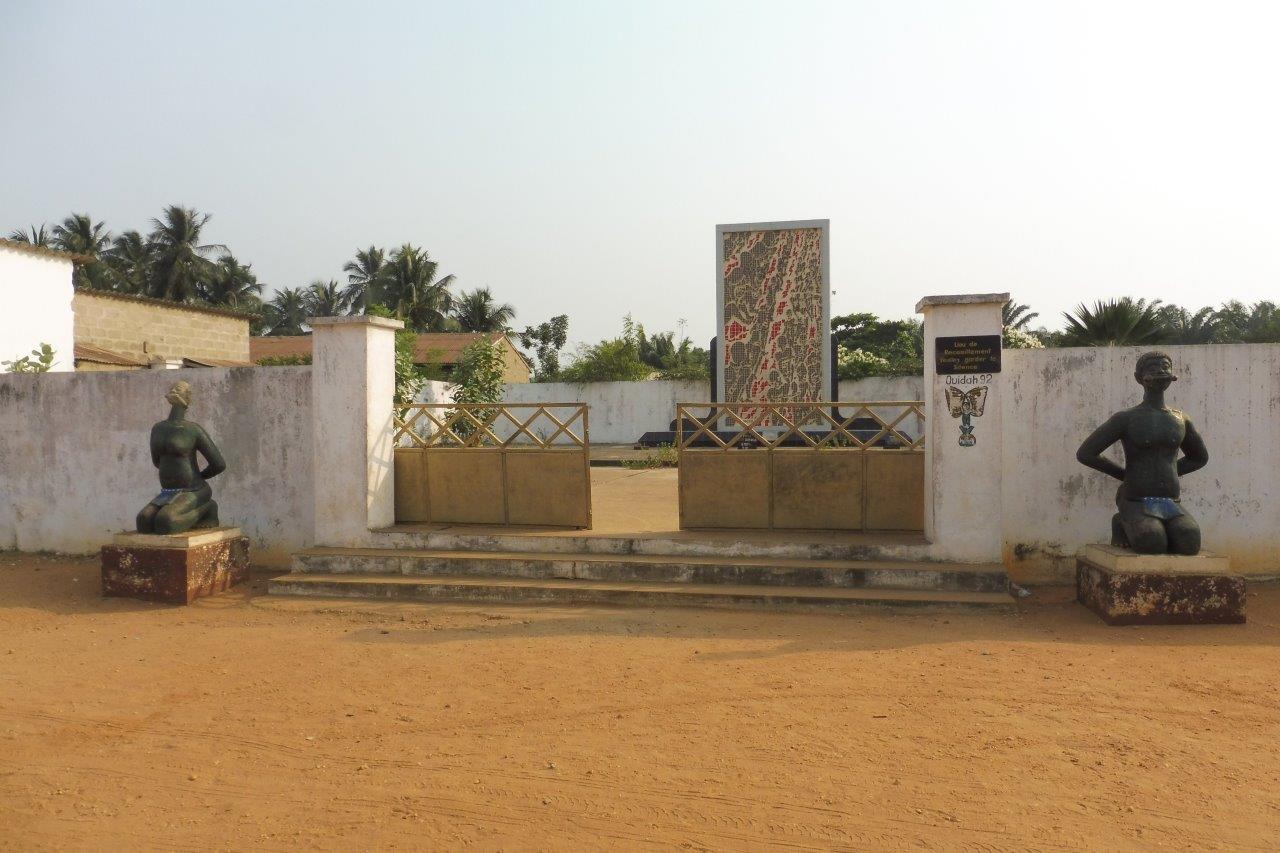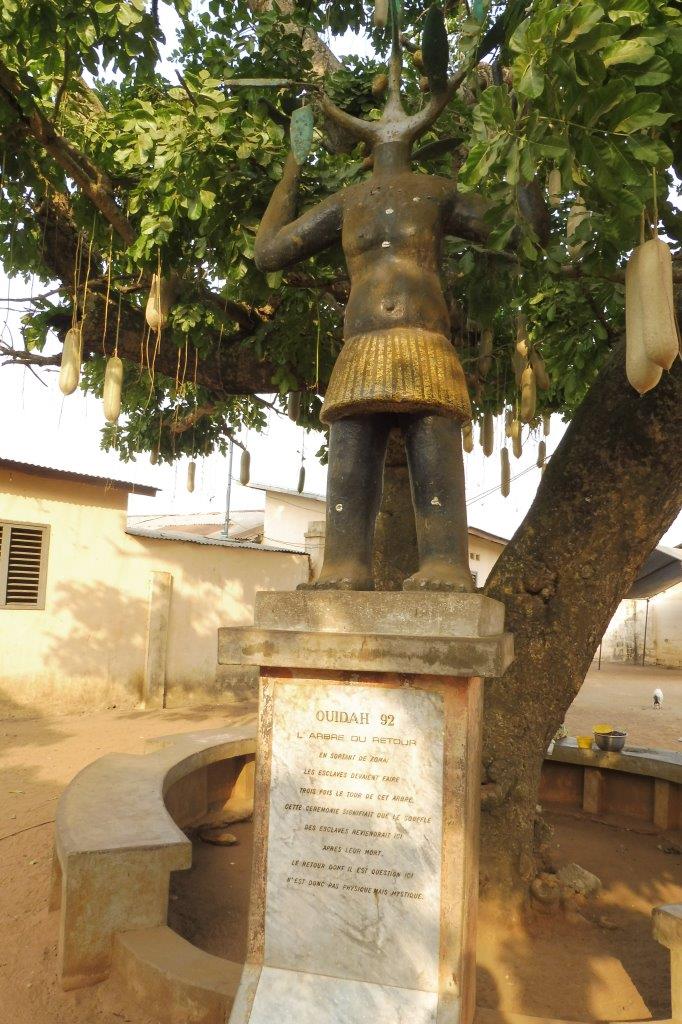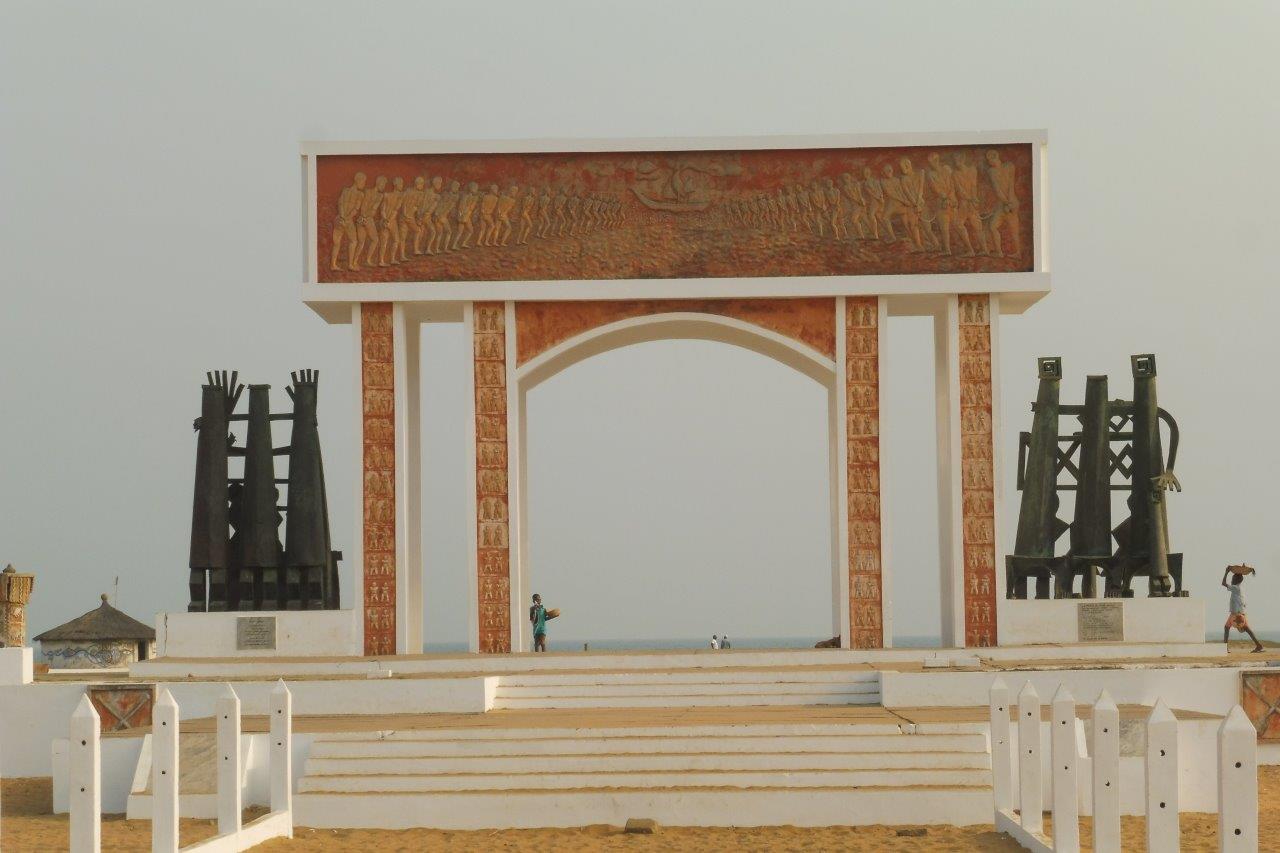Fieldtrip Benin
From 31st January to the 9 February, members of Project Black Atlantic Revisited carried out its first field trip to Benin. This trip coincided with a 3-day international colloquium on Slavery organised in the historic city of Whydah by the University of Abomey Calavi in cooperation with Le Mans Université in France.
Created in 1992 and added in 1996 to the UNESCO tentative list of slave heritage sites, The Whydah “Slave Route” project is aimed at retracing the steps of over a million slaves who were embarked on ship to the New World. While UNESCO has been slow to classify the space as a world heritage site, a number of other projects have emerged on the fringes of the slave route, which has been the subject of constant criticism and even controversy (Goussanou 2018, “La « Route de l'esclave » de Ouidah : espace de négociation des mémoires collectives des traites négrières et de l'esclavage”). This observation raises questions about the stakes accounting for the proliferation of memories, and the new socio-cultural and artistic aesthetics of these counter-memories.
Field Trip
Within the framework of the project "Black Atlantic revisited", an exploratory fieldtrip was carried out in Benin to visit official slave heritage sites and memorials, and to engage with intellectuals, researchers and other resource persons on the memory of slavery in Ouidah in particular and Benin as a whole.
Conference on Slavery
The 3-day fieldtrip was followed by an international conference on slave memories in literature, art and museums. Organized by the University of Abomey-Calavi in Benin in partnership with Le Mans University of France, the conference hosted over 60 artists, scholars, young and experienced, to discuss current research on slavery within their respective fields.



